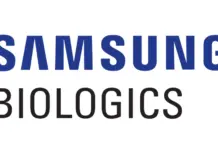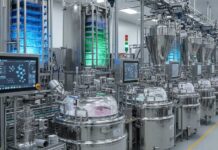Sensor technology is revolutionising clinical trials by delivering continuous, objective, and real-time health data that enhances patient monitoring, elevates data accuracy, and streamlines trial processes for both researchers and sponsors. This article explores the multifaceted impact of sensors on clinical research across four central themes: real-time data collection and patient-centric monitoring, improving data accuracy and research outcomes, efficiency gains and expanded access, and personalised medicine in clinical trials.
Clinical trials are the cornerstone of medical innovation, forming the pathway for new treatments and therapies to reach patients safely. Traditionally, these trials relied heavily on episodic, site-based data collection methods, which represented only snapshots of patient health and often required burdensome frequent visits. With the integration of sensor technology—including wearables and biosensors—clinical trials have entered a new era marked by richer data, patient empowerment, and acceleration of research timelines.
Real-Time Data Collection and Patient-Centric Monitoring
Wearable sensors and digital health technologies have transformed the ways in which patient data is captured and managed during clinical studies. These devices continuously—or at set intervals—collect physiological signals, such as heart rate, activity levels, glucose levels, and sleep patterns, often without the need for immediate patient or site intervention.
By offering real-time insights, sensors significantly reduce the burden on participants, as clinical teams can remotely monitor trends and identify nuances in patient behaviour that might otherwise be missed during infrequent site visits. This shift to remote and decentralised trials improves access for diverse patient populations, especially for those in underserved regions or with limited mobility. Patient-centric sensors also foster engagement, as participants gain ownership over their health metrics, resulting in higher adherence rates and lower dropout rates.
Continuous data capture provides a fine-grained understanding of a treatment’s impacts on day-to-day functioning and wellness, allowing researchers to evaluate outcomes objectively across extended periods. These passive data streams minimise recall bias and reveal subtle changes that self-reported questionnaires or periodic assessments cannot reliably capture, thereby enriching the overall quality and integrity of clinical data. As sensor adoption rises, the patient experience within trials becomes more streamlined, personalised, and directly tied to real-world outcomes.
Data Accuracy and Research Outcomes
The incorporation of sensors and wearables in clinical trials ensures that collected data is both objective and comprehensive, enhancing the accuracy of efficacy assessments and end-point analysis. Traditional methods often rely on subjective patient-reported outcomes or sporadic clinical measurements, which can lead to biases and inaccuracies in trial data. With sensors, research teams can monitor vital signs and physiological metrics continuously, leading to more precise and reliable datasets.
Objective measurement through sensor technology reduces uncertainty by replacing episodic updates with a dynamic, ongoing record of patient progress. For example, gait analysis in patients with Parkinson’s disease or activity levels in those with chronic obstructive pulmonary disease can be documented round-the-clock, producing detailed metrics on movement and wellness. This wealth of data enables researchers to detect meaningful trends and changes earlier in the trial process, facilitating timely adjustments and optimising treatment regimens.
Ultimately, the higher fidelity of data obtained from sensors can mean smaller required sample sizes and potentially shorter trial durations, which benefits sponsors and participants while lowering overall costs. Real-world, longitudinal datasets help build a stronger clinical evidence package, further accelerating the approval process for novel therapies. In addition, regulatory agencies are increasingly recognizing actigraphy and other sensor-derived measures as valid endpoints in pivotal trials, reinforcing the role of objective digital health tools in drug development.
Efficiency Gains and Expanded Access
The integration of sensor technology into clinical trial infrastructure has brought about enhanced operational efficiency, while simultaneously widening access and inclusivity within research studies. With sensors, manual data entry and the risks associated with transcription errors are minimized, as automated passive data flows streamline the collection, processing, and analysis of trial information. This reduces the need for burdensome, repeated site visits, allowing for decentralized and remote research models that were rapidly adopted during the COVID-19 pandemic.
Efficiency is further supported by the ability of sensors to generate large, multivariate datasets over periods that capture real fluctuations and trends in health status. Researchers can leverage artificial intelligence and machine learning (AI/ML) analytics on this trove of wearable-derived data, enabling sophisticated pattern recognition, early detection of changes, and risk prediction that enhances intervention planning. These advanced analytic tools foster faster decision-making and can help identify appropriate patient populations suited for specific treatments or protocols.
Sensor-driven trials not only allow for broader, more representative sampling of patient experiences but also mitigate geographic and logistical barriers that previously hindered participation. By incorporating real-world monitoring, trials can more effectively recruit from rural or otherwise underserved populations, increasing the diversity and generalisability of study results. As sponsors and contract research organisations partner to integrate sensors seamlessly into trial workflows, the overall administrative burden on both sites and participants is reduced, supporting higher retention rates and improved overall satisfaction.
Personalized Medicine Approaches in Clinical Trials
Another transformative impact of sensor technology is the enablement of personalised medicine within clinical trials. By collecting individualised data from wearable sensors, clinicians and researchers gain actionable insights into the unique responses and progress of each participant. Continuous, detailed monitoring facilitates tailored treatment regimens that adjust to the specific needs, behaviours, and outcomes of patients, rather than relying exclusively on population averages or standardised protocols.
Sensors not only empower fine-tuning of dosage and intervention schedules but also support more accurate identification of subgroups that may benefit most from experimental therapies. For instance, early detection of physiological changes through sensor streams can inform clinicians when to adjust medication, introduce supportive interventions, or monitor for safety signals, thereby improving patient safety and enhancing outcomes.
As personalised approaches grow in prominence, so too does the potential for sensor data integration with electronic clinical outcome assessments (eCOA) and digital biomarkers, establishing composite measures that offer comprehensive real-time feedback. The evolution toward individualised medicine strongly aligns with the goals of patient-centric research, optimising efficacy and safety for each enrolled participant.
Conclusion
In summary, sensor technology has profoundly transformed clinical trials by offering continuous, objective, and patient-driven data collection that enhances research outcomes, efficiency, and patient engagement. The adoption of sensors enables real-time monitoring, improves data accuracy, streamlines operations, expands trial accessibility, and drives the evolution toward personalised medicine. As these technologies become further integrated into standard research protocols, the future of clinical trials promises richer insights, swifter drug development, and improved patient outcomes, ultimately advancing global healthcare innovation.




























